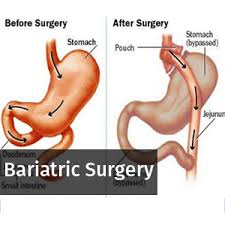- Home
- Editorial
- News
- Practice Guidelines
- Anesthesiology Guidelines
- Cancer Guidelines
- Cardiac Sciences Guidelines
- Critical Care Guidelines
- Dentistry Guidelines
- Dermatology Guidelines
- Diabetes and Endo Guidelines
- Diagnostics Guidelines
- ENT Guidelines
- Featured Practice Guidelines
- Gastroenterology Guidelines
- Geriatrics Guidelines
- Medicine Guidelines
- Nephrology Guidelines
- Neurosciences Guidelines
- Obs and Gynae Guidelines
- Ophthalmology Guidelines
- Orthopaedics Guidelines
- Paediatrics Guidelines
- Psychiatry Guidelines
- Pulmonology Guidelines
- Radiology Guidelines
- Surgery Guidelines
- Urology Guidelines
Managing Obesity in the Workplace − New Guidance from ACOEM

Effective prevention and treatment steps—including coverage for bariatric surgery, when indicated—can help employers to control the health and economic impact of obesity in the workplace, according to an ACOEM Guidance Statement, published in the January Journal of Occupational and Environmental Medicine.
The statement provides recommendations for employers and health plan designers to manage obesity among employees. The recommendations were developed by an ACOEM expert panel, based on 275 selected, high-quality studies of obesity in the workplace. "Our findings support the use of both lifestyle modification and bariatric surgery to assist appropriate patients in losing weight," write ACOEM President and Panel Chair Charles M. Yarborough III, MD, MPH, and colleagues.
Nearly 38 percent of US adults are obese, including about 40 percent of women and 35 percent of men. Meanwhile, surveys suggest that most employees do not have coverage for obesity treatments. In addition to its effects on worker health and safety, obesity in the workplace has a major impact on health care costs, absenteeism, and productivity. Annual costs for obesity-related absenteeism alone are estimated at $8.65 billion.
"The cost of obesity among workers is immense, and the responsibility for managing it is increasingly falling to employers," Dr. Yarborough and coauthors write. They cite evidence that work can also be a causal factor for obesity, with risk factors including social stressors, psychosocial work factors, working hours, sleep and night shift work, and sedentary behavior.
Based on the evidence, the expert panel provides a set of treatment recommendations for addressing worker obesity. Treatment recommendations include implementing workplace wellness programs and behavioral counseling to aid employees in adopting healthy lifestyles. Based on studies showing health and economic benefits, the expert panel also recommends that employers offer insurance coverage and access to bariatric surgery for treatment of obesity. The recommendations include specific criteria for eligibility for bariatric surgery.
The Guidance Statement also identifies key areas for further research, including studies to clarify and maximize the benefits of obesity medications and bariatric surgery. Dr. Yarborough and colleagues conclude, "As these interventions may prove cost-effective in the long term, a case can be made that they be covered by insurance."
Mitchell Roslin, MD, Director of Bariatric and Metabolic Surgery at Lenox Hill Hospital, New York, is a coauthor of the new report. "Whereas the impact of obesity on life expectancy, diabetes, sleep apnea and health care costs are frequently discussed, the hidden damage and consequences of obesity on the American work force are less known and incredibly detrimental," Dr. Roslin comments. "Obesity leads to reduced performance, increased chance of disability, and the greater likelihood for requiring performance waivers for certain aspects of employment. There is a direct impact on health care costs and a harder to quantify burden on productivity.
"In this much-needed and sentinel document, specialists from multiple fields related to obesity and population health management have compiled critical information from evidence-based studies and made recommendations to begin to counteract this national epidemic. It is becoming widely known that companies with healthy employees succeed and have better employee and customer satisfaction. Obesity is a key determinant of health, yet increasing at alarming rates. The importance of adding greater awareness and better programs to combat obesity to the workplace cannot be overstated."

Disclaimer: This site is primarily intended for healthcare professionals. Any content/information on this website does not replace the advice of medical and/or health professionals and should not be construed as medical/diagnostic advice/endorsement or prescription. Use of this site is subject to our terms of use, privacy policy, advertisement policy. © 2020 Minerva Medical Treatment Pvt Ltd